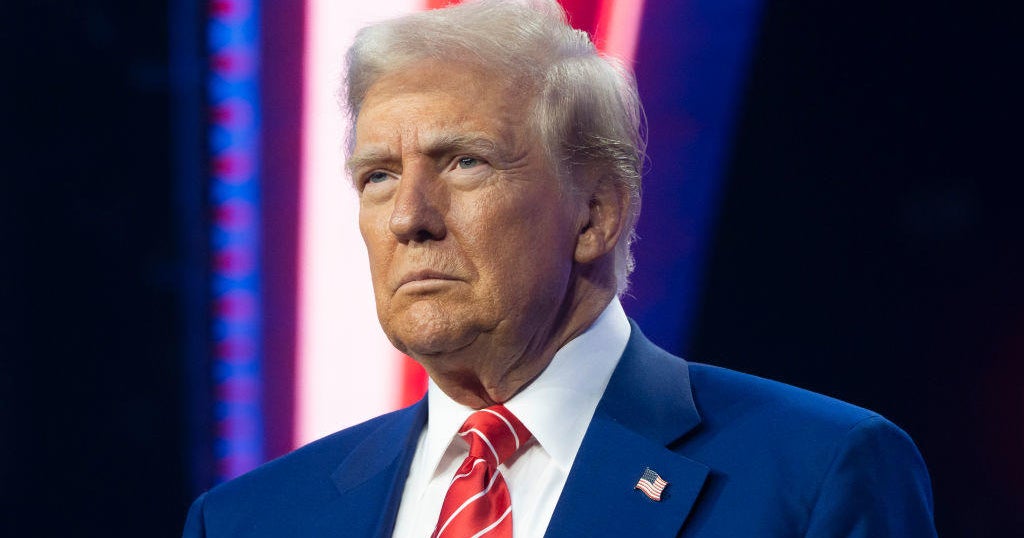Trump to pause immigrant visas for 60 days, citing economic impact of coronavirus
President Trump on Tuesday announced he will be issuing a directive to temporarily suspend the processing of certain visas for foreigners seeking to immigrate to the U.S., portraying the move as a necessary one to protect U.S. public health resources and American workers reeling from an economy battered by the coronavirus pandemic.
The 60-day restriction will affect people overseas seeking to become permanent residents in the U.S., Mr. Trump told reporters during Tuesday's White House coronavirus task force briefing. The main ways prospective immigrants can obtain green cards is through petitions by U.S. citizen or permanent resident family members, or by businesses looking to hire them. The president did not immediately clarify whether the order will restrict one of these petitions or both.
Mr. Trump said the measures will not apply to those looking to work in the U.S. on a temporary basis, suggesting that the directive will not suspend the processing of non-immigrant visas, which can allow technology workers, students, agricultural workers and other foreigners to work and live in the U.S. for a limited period of time.
The president sold the directive as an effort to prevent "immigrant labor" from replacing U.S. workers. "We must take care of the American worker," he told reporters. Mr. Trump said the order was still being drafted as of Tuesday evening, predicting he would "most likely" sign it on Wednesday.
The Trump administration had already tightened the country's borders in response to the deadly pandemic, which has killed more than 43,000 people in the U.S.
Visa processing for both would-immigrants and prospective workers abroad has been extremely limited since March 20, when the State Department, which oversees consular officers, canceled most appointments at U.S. consulates and embassies. Admissions of new refugees have been paused since March 19, with the exception of certain "emergency" cases, a State Department spokesperson told CBS News on Tuesday.
Non-essential travel through ports of entry along the land borders with Mexico and Canada has been banned since March. The U.S. Department of Homeland Security renewed those restrictions Monday. In January, the president restricted travel from China and extended those restrictions to most of western Europe in early March.
By invoking a World War II-era public health law, officials at the U.S.-Mexico border have also been expelling thousands of unauthorized migrants and asylum-seekers, including unaccompanied migrant children, who are afforded extra legal safeguards under U.S. anti-trafficking and immigration laws.
Through these restrictions, which were also renewed on Monday, the U.S., for the first time since the creation of the nation's asylum and refugee regime in 1980, has stopped offering protection to those who claim fear of persecution in their home countries.
U.S. Immigration and Citizenship Services has suspended in-person appointments at all its field offices, preventing green card holders from naturalizing and becoming U.S. citizens.
It's unclear under which legal authorities the president will issue the order. Mr. Trump has previously invoked his broad authority under U.S. immigration law to ban foreigners by proclamation if he determines their entry could be "detrimental to the interests" of the U.S. That was the legal justification behind his administration's travel ban upheld by the Supreme Court in 2018, as well as a directive last year banning the entry of would-be immigrants whom officials determine won't be able to afford health insurance or medical treatment in the U.S.
Doug Rand, a former Obama administration official who co-founded a company that helps immigrants file green card and citizenship petitions, said the administration is likely to cite that same provision in U.S. immigration law to justify the new order. "It's a blunt instrument, and every time they pick it up, they swing it even harder," he told CBS News.
Rand said the fact that Mr. Trump announced the new restrictions won't apply to temporary work visas shows the expected policy is part of the administration's concerted efforts to severely limit immigration. "At this point, there can be not doubt that Trump is using the pandemic as a pretext to make the most aggressive attempt to change the face of America," he said.
"This is basically just applying the Muslim ban expansion to the entire world," Rand added.
The U.S. Department of Homeland Security did not respond to requests to elaborate on the expected restrictions, which Mr. Trump first previewed late Monday on Twitter.





